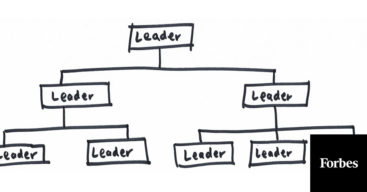President Obama walked out of his final press conference yesterday and into the Roosevelt Room to do his final media interview as President. He sat down with Jon Favreau, Jon Lovett, Dan Pfeiffer and Tommy Vietor, four of his former advisors and speechwriters who now run Pod Save America, currently one of the top podcasts across a variety of platforms.
What struck me most about the interview was his authenticity. Something he’s always been good at, maybe to a fault. Below I’ve transcribed his answers to 2 questions that I found particularly powerful. I like them because they’re reflective and not fishing for easy answers—qualities I find indispensable to long-term effective leadership. A few lines I liked are highlighted.
PSA: If you could go back in time and talk to 2009 Obama on his first day in office what piece of advice would you give him right before he walks into the Oval Office?
Obama: I would tell him that you have to spend more time thinking about new ways of communicating with the American people. You can’t be so intimidated by the way things have been done in the White House because the communications landscape is shifting. And when you think about the dilemmas that we were confronting—the economy was collapsing, we were still in two wars—I’m always surprised and gratified about how we got, I think, basic policy right. And that was mainly because we just had a lot of really smart people working really hard. Had a good process. But, you know, as Lincoln said, with public opinion there’s nothing you can’t do and without it there’s not much you can do. And we were going to get clobbered in 2010 probably no matter what we did just because on my watch people were really hurting. But I think what I might’ve said to 2009 Obama is think about how you got here and spend that same amount of effort and energy touching people directly as opposed to standing behind a podium and giving a bunch of grim lectures. I think that’s where the impression arose that Obama is really Spock-like because I was talking about [things like] well today we lost 800,000 jobs but here’s what we’re going to do. It was hard to seem cheerful and liked. The other thing I probably would have told myself is to make sure that the team is supported and encouraged and you’re really paying attention to process. I think we wound up being good later. I got better and at the whole team got better. But you know in those early days I think you don’t appreciate how much just making sure that everybody is communicating well together internally, looking out for each other [is important.]
PSA: You’ve talked a lot, particularly in your [farewell] speech in Chicago, about the impact of people living in bubbles. How do you think, in this polarized media environment, people can get out of these bubbles?
Obama: I’ve been thinking a lot about that. I don’t have clean answers. Some of it is just technology driven—if you have a phone and you are able to visit everything on the web with the touch of a button you are going to get into certain habits. You can lecture people about [the importance of] going to the site that makes your blood boil, with which you completely disagree, but it’s hard to do and I don’t think you’re going to get a huge amount of take-up. I think that it’s unrealistic to expect that people are just going to put their phones away and spend all their time listening to NPR or your other media that I might think is more balanced and more accurate. On the other hand I my instinct is everybody hates media right now. Everybody knows that the political culture doesn’t work, so that has to be an opportunity. There’s got to be a way in which we can create some sort of virtual public square that feels better for people. My suspicion is that, particularly after the last election, there is a sizable, maybe-still-silent majority that is just tired of being mad all the time and would appreciate people just listening to each other. So, one of things I’m going to be thinking about is how do we build that civic culture, both in the real world and in the virtual world. Because if we don’t, I don’t know how we solve problems. Each side can win elections. Each side can, in that tug-of-war, move 5 yards this way or that way. But tackling big challenges of the sort that I talked about in that speech: tackling inequality, thinking about what are the new economic models that we’re going to have to come up with. That’s going to require building consensus and we are very far away from doing the right now.
Photo credit: Pod Save America



